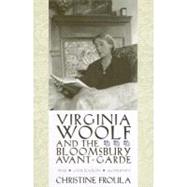Virginia Woolf and the Bloomsbury Avant-Garde : War, Civilization, Modernity
, by Froula, Christine- ISBN: 9780231134453 | 0231134452
- Cover: Paperback
- Copyright: 3/1/2007
Virginia Woolf and the Bloomsbury Avant-Gardetraces the dynamic emergence of Woolf's art and thought against Bloomsbury's public thinking about Europe's future in a period marked by two world wars and rising threats of totalitarianism. Educated informally in her father's library and in Bloomsbury's London extension of Cambridge, Virginia Woolf came of age in the prewar decades, when progressive political and social movements gave hope that Europe "might really be on the brink of becoming civilized," as Leonard Woolf put it. For pacifist Bloomsbury, heir to Europe's unfinished Enlightenment project of human rights, democratic self-governance, and world peace -- and, in E. M. Forster's words, "the only genuine movementin English civilization" -- the 1914 "civil war" exposed barbarities within Europe: belligerent nationalisms, rapacious racialized economic imperialism, oppressive class and sex/gender systems, a tragic and unnecessary war that mobilized sixty-five million and left thirty-seven million casualties. An avant-garde in the twentieth-century struggle against the violence within European civilization, Bloomsbury and Woolf contributed richly to interwar debates on Europe's future at a moment when democracy's triumph over fascism and communism was by no means assured. Woolf honed her public voice in dialogue with contemporaries in and beyond Bloomsbury -- John Maynard Keynes and Roger Fry to Sigmund Freud (published by the Woolfs'Hogarth Press), Bertrand Russell, T. S. Eliot, E. M. Forster, Katherine Mansfield, and many others -- and her works embody and illuminate the convergence of aesthetics and politics in post-Enlightenment thought. An ambitious history of her writings in relation to important currents in British intellectual life in the first half of the twentieth century, this book explores Virginia Woolf's narrative journey from her first novel, The Voyage Out, through her last, Between the Acts.







